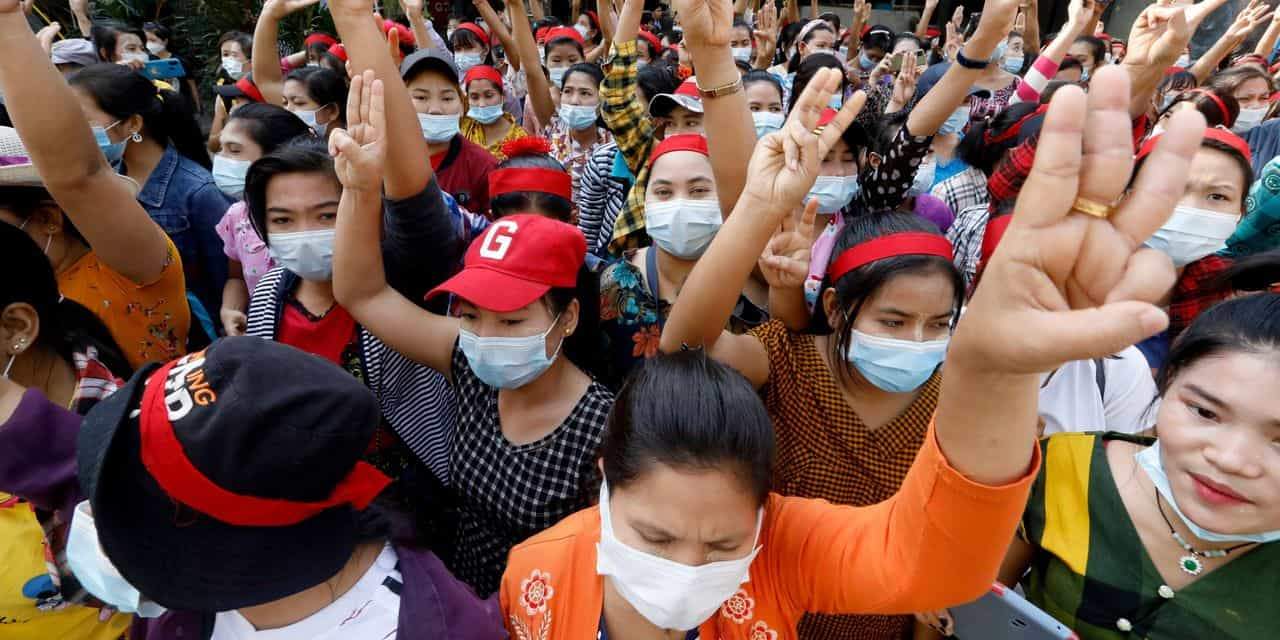Myanmar Coup: What’s Happening and Why Are There Protests?
Thursday, February 25, 2021
Categories: ASCF News Emerging Threats National Preparedness

Massive protests have swept Myanmar in opposition to a Feb. 1 coup that ended the country’s decadelong shift toward democracy and returned it to military rule. The takeover has pit citizens, who have poured into the streets in the hundreds of thousands, against a powerful military that has used lethal force to crush democracy movements in the past.
The generals have responded to the demonstrations with nightly internet blackouts, detentions and warnings that lives may be lost, and police have used water cannons, tear gas and bullets against protesters.
Why are people in Myanmar protesting?
On Feb. 1, Myanmar’s military seized control of the government, detaining civilian leader Aung San Suu Kyi and senior members of her National League for Democracy party. The takeover was a major blow to the Southeast Asian nation’s fragile transition to democracy, which began about a decade ago after half a century of military domination.
Protesters are demanding Ms. Suu Kyi’s immediate release and a return to democratic rule. Mass demonstrations began on Feb. 6 in Yangon, the nation’s largest city. They have since grown in size and spread to other parts of the country.
The protests have drawn an array of people, including civil servants, healthcare professionals, garment-factory workers, railway workers, students and political activists. Civil-society groups and young citizens have mobilized crowds using social media and encrypted messaging apps.
How did the military coup unfold?
Ms. Suu Kyi and other senior members of her National League for Democracy were detained in predawn raids on Feb. 1, hours before the military said on an army-run television station that it was imposing a state of emergency. Military checkpoints were set up on the roads around the capital city of Naypyitaw as residents rushed to buy groceries and withdraw cash from ATMs.
Tensions with the military had been rising in recent months after Ms. Suu Kyi’s party won national elections in November in a landslide and the military-backed opposition party disputed the election process. The military alleged that the voter lists had false names and said its attempts to resolve the issue were rebuffed by the election commission, which has denied there was widespread fraud.
On Feb. 1, which was scheduled to be the first day of Parliament after the elections, the military took over. Police have since accused Ms. Suu Kyi of illegally importing walkie-talkies and violating pandemic-related restrictions, using the cases to keep her detained in her house in Naypyitaw.
Who is Aung San Suu Kyi?
Ms. Suu Kyi is the daughter of Aung San, a politician and military leader who helped the country gain independence from British colonial rule in 1948. She rose to prominence decades later when she took on the country’s generals, who dominated the political landscape, and was put under house arrest in 1989. She was awarded the Nobel Peace Prize in 1991 and spent 15 years in detention over two decades, becoming one of the world’s most prominent political prisoners.
She was released in 2010 as the country began its transition to democracy. Her party came to power in a 2015 vote that marked a historic shift in the country’s politics. She served in the role of state counselor rather than president but effectively led the Southeast Asian country for around five years before the coup.
Ms. Suu Kyi’s image as a human-rights icon was severely damaged by her handling of genocide allegations against Myanmar after a brutal military operation forced more than 740,000 members of the Rohingya Muslim minority out of the country in 2017. When she appeared before the International Court of Justice in 2019, she echoed the military’s arguments that the operation was a counterterrorism effort. She urged the court to trust in Myanmar’s military to investigate the accusations against them.
How have the U.S. and China responded to the coup?
Myanmar’s transition from military rule toward democracy had been trumpeted as a strategic victory for Washington in China’s backyard.
President Biden said the Myanmar military’s power grab was a direct assault on the country’s democratic transition and that the U.S. would work with its partners in the region and around the world to support the return of democracy and rule of law.
He noted that the U.S. had waived sanctions on Myanmar after it began moving toward a democratic form of government. Since the coup, Washington has imposed new sanctions against several military leaders and their businesses, and frozen access to $1 billion of Myanmar funds held in the U.S.
“The reversal of that progress will necessitate an immediate review of our sanction laws and authorities, followed by appropriate action,” he said. “The United States will stand up for democracy wherever it is under attack.”
Asked whether China condemned the military coup, Chinese Foreign Ministry spokesman Wang Wenbin said: “China is Myanmar’s friendly neighbor. We hope all sides in Myanmar can properly manage their differences under the constitution and legal framework to uphold political and social stability.”
Photo and Link: Myanmar Coup: What’s Happening and Why Are There Protests? - WSJ











